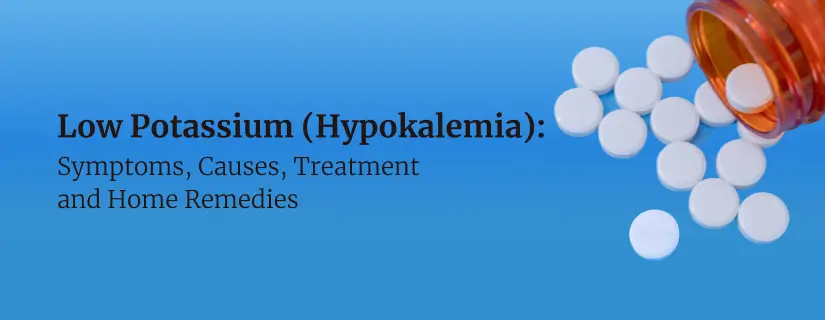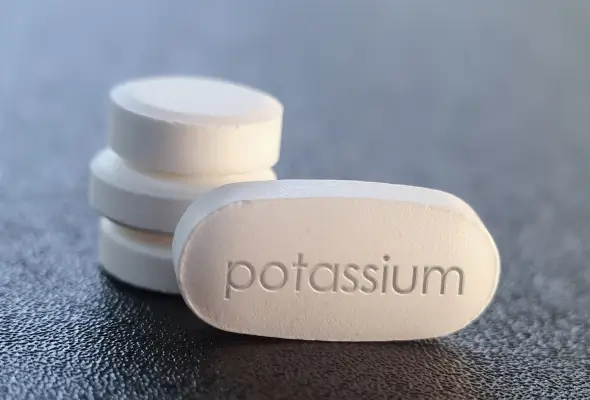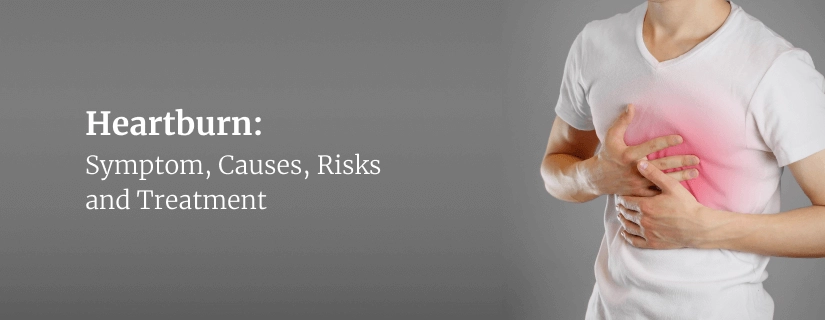-
Doctors
-
Specialities & Treatments
Centre of Excellence
Specialties
Treatments and Procedures
Hospitals & Directions HyderabadCARE Hospitals, Banjara Hills CARE Outpatient Centre, Banjara Hills CARE Hospitals, HITEC City CARE Hospitals, Nampally Gurunanak CARE Hospitals, Musheerabad CARE Hospitals Outpatient Centre, HITEC City CARE Hospitals, Malakpet
HyderabadCARE Hospitals, Banjara Hills CARE Outpatient Centre, Banjara Hills CARE Hospitals, HITEC City CARE Hospitals, Nampally Gurunanak CARE Hospitals, Musheerabad CARE Hospitals Outpatient Centre, HITEC City CARE Hospitals, Malakpet Raipur
Raipur
 Bhubaneswar
Bhubaneswar Visakhapatnam
Visakhapatnam
 Nagpur
Nagpur
 Indore
Indore
 Chh. Sambhajinagar
Chh. SambhajinagarClinics & Medical Centers
Book an AppointmentContact Us
Online Lab Reports
Book an Appointment
Consult Super-Specialist Doctors at CARE Hospitals
Low Potassium (Hypokalemia): Symptoms, Causes, Treatment and Home Remedies
Updated on 25 March 2024

A mineral found abundantly in many foods, potassium plays a vital role in everyday bodily processes. From muscle and nerve functionality to heart rhythm regulation, adequate potassium levels are crucial for maintaining optimal health. When potassium levels in the body become lower than normal, adverse low blood potassium symptoms can develop and impact an individual’s quality of life significantly. Low potassium level in the body is referred to as hypokalemia.
Understanding common low potassium symptoms along with risk factors enables prompt recognition and correction before severe consequences arise. In this blog, we will explore how to identify symptoms of low potassium levels, ways to investigate causative factors at play, and practical treatment methods using dietary adjustments, lifestyle changes, medications or supplements under a doctor's guidance to manage low potassium.

Symptoms of Low Potassium
Some common signs and symptoms of hypokalemia include:
- Fatigue and weakness: Low potassium can cause overall tiredness and muscle weakness. This makes routine activities difficult.
- Muscle cramps and spasms: One of the classic signs of low potassium is painful muscle cramps and spasms, especially in the legs.
- Tingling or numbness: Low potassium can cause nerve dysfunction, leading to tingling, numbness or painful sensations.
- Abnormal heart rhythms: Severely low potassium induces abnormal heart beats like atrial fibrillation. This causes palpitations, dizziness and chest pain.
- Digestive issues: Hypokalemia impairs digestion, causing bloating, constipation or abdominal discomfort after eating.
- Hypertension: Potassium helps maintain normal blood pressure. Low levels can cause hypertension.
Mild cases may have no symptoms initially. But over time, low potassium takes a toll on overall health. Monitoring levels is important even without overt symptoms.
Causes of Low Potassium
There are several potential causes of low blood potassium, including:
- Vomiting and diarrhoea: Frequent vomiting or diarrhoea can lead to excessive potassium loss and dehydration. These deplete potassium reserves quickly.
- Medications: Water pills (diuretics), laxatives, steroid medications, and certain antibiotics and chemotherapy drugs increase potassium excretion. This lowers blood levels.
- Kidney disease: Damaged kidneys have difficulty conserving potassium. Certain kidney disorders like Bartter syndrome also cause excessive urinary potassium waste.
- Endocrine disorders: Diseases of the adrenal glands like Cushing's syndrome hamper the kidney's ability to retain potassium.
- Sweating: Heavy sweating during exercise, saunas or hot weather leads to substantial loss of potassium through the skin.
- Inadequate intake: While rare, an extremely poor diet lacking in fruits, vegetables and proteins can result in low potassium.
Potassium Deficiency Diagnosed
Doctors diagnose hypokalemia through:
- Blood tests: A blood potassium test directly measures levels of this mineral in the body. Values below 3.5 mEq/L indicate hypokalemia. Tests under 3 mEq/L signify severe deficiency.
- Urine potassium: Measuring urinary potassium determines if excessive loss of potassium through the kidneys causes hypokalemia. High levels indicate renal wasting.
- ECG: An electrocardiogram evaluates the heart's electrical activity. Low potassium causes characteristic ECG changes like a prolonged QT interval and U waves.
- Checks for underlying disorder: Testing kidney and gland function along with medication history helps determine the cause of hypokalemia.
How is Low Potassium Deficiency Treated?
Treating low potassium involves:
- Oral supplements: Potassium salts like potassium chloride and potassium bicarbonate tablets or liquids help restore mild deficiency. The dose is tailored to the severity of hypokalemia and underlying disorder.
- IV potassium: Severe hypokalemia requires intravenous potassium administration in hospital to prevent heart and breathing complications.
- Dietary changes: Increasing potassium consumption through fruits, vegetables, fish, beans, dairy and nuts helps build reserves.
- Addressing underlying causes: Stopping medications that can cause low potassium levels, managing diarrhoea/vomiting, or treating kidney disorders helps maintain normal potassium balance.
Complications of Low Potassium
Unaddressed hypokalemia can cause life-threatening complications, including:
- Heart attack or rhythm abnormalities: Critically low potassium causes ventricular tachycardia, heart block and asystole. These require emergency defibrillation.
- Respiratory failure: Neuromuscular respiratory weakness hampers breathing, necessitating intensive ventilator support.
- Paralysis: Severe, untreated hypokalemia paralyses limbs and respiratory muscles, risking profound disability.
- Catching and treating potassium deficiency early can help prevent these serious complications. Mild chronic hypokalemia can impair wellbeing and quality of life in subtler ways. Maintaining optimal levels of potassium is key for ensuring healthy functioning of the body.
When to Contact a Doctor for Low Potassium?
Consult a doctor if you have potential hypokalemia signs like:
- Unexplained fatigue, cramping or muscle weakness
- Abnormal heartbeat or palpitations
- Tingling or numbness in extremities
- Chronic nausea, vomiting or diarrhoea
Also, seek help if taking diuretics or medications that can lower potassium levels. Schedule periodic blood work to check levels of this mineral. Seek emergency care for severe symptoms like chest pain, trouble breathing, paralysis, or collapsing.
Home Remedies for Low Potassium
You can boost your potassium levels at home by:
- Increasing high-potassium foods: Focusing on potassium-rich fruits, vegetables, beans, lentils, fish and nuts helps offset losses.
- Staying hydrated: Dehydration exacerbates electrolyte imbalance. Drink adequate fluids, especially with illness-related losses.
- Reducing culprit medications: Consult your doctor about stopping or lowering diuretic doses, if possible while ensuring blood pressure control.
- Taking supplements: Over-the-counter potassium supplements like potassium chloride may help counter deficiency. Check with your doctor on appropriate products and doses based on your blood levels.
Conclusion
Hypokalemia is a potentially serious condition that can cause debilitating symptoms. Various medical conditions and medications can lead to a potassium deficit, affecting nerve, muscle, and heart function. Catching it early and taking oral supplements or making dietary modifications often reverses it. Ignoring severe cases of hypokalemia is dangerous and may even lead to heart attacks, paralysis, and death. Still, lifelong vigilance is essential as even mild chronic low potassium can take an insidious toll on wellness over time.
FAQs
1. What is the effect of low potassium in the body?
Low potassium adversely impacts nerve signals, muscle contraction, digestion, and heart rhythm. This causes many distressing signs like fatigue, cramps, palpitations, and constipation. In the long term, it strains the cardiovascular system raising the likelihood of lethal heart arrhythmias and cardiac arrest.
2. How can I raise my potassium level quickly?
You can raise potassium fairly rapidly by taking over-the-counter potassium supplements, drinking coconut water or sports drinks like Gatorade, and eating bananas, potato skins, yoghurt, and other potassium-rich foods. Severely low levels require emergency IV infusions for fastest correction under monitoring.
3. Which food is highest in potassium?
Some foods that are very high in potassium include beet greens, white beans, soybeans, lima beans, Swiss chard, potato skins and avocados. For most deficient but stable people, integrating a mix of potassium foods is recommended rather than relying on just one.
4. How can I check my potassium level at home?
Unfortunately, checking blood potassium levels requires laboratory testing. But home electrolyte analysis can measure potassium in urine. Track trends in urinary potassium rather than relying on single measurements. See your doctor to correlate with blood levels and rule out serious disorders. Eat potassium-rich foods and minimise the use of medications that may cause potassium levels to deplete. Stay vigilant regarding symptoms too. Seek prompt care if symptoms like muscle weakness or palpitations develop.
To Book an Appointment, call:
ENQUIRY FORM
SELECT CATEGORIES
-
Neurosciences (16)
-
Neurology (37)
-
Neurosurgery (14)
-
Orthopaedics (48)
-
Oncology (33)
-
Obstetrics and gynecology (51)
-
Pulmonology (23)
-
Urology (20)
-
Nephrology (13)
-
Psychiatry (7)
-
Dietetics and Nutrition (111)
-
General Medicine (63)
-
Cardiac Sciences (30)
-
Vascular & Endovascular Surgery and Interventional Radiology (10)
-
Gastroenterology (46)
-
Endocrinology (23)
-
Plastic Surgery (10)
-
Critical Care Medicine (5)
-
COVID-19 (16)
-
Dermatology (16)
-
Emergency Care (1)
-
Ophthalmology (4)
-
Pediatrics (14)
-
Laparoscopic and Bariatric Surgery (8)
-
ENT (15)
-
Kidney Transplant (1)
-
Liver Transplantation and Hepatobiliary Surgery (5)
-
General Surgery (3)
-
Internal Medicine (5)
-
Medicine Information
Vitamin A Deficiency: Symptoms, Causes, Diagnosis and Treatment
High Platelet Count (Thrombocytosis): Symptoms, Causes and Treatment
YOU MAY ALSO LIKE
RECENT BLOGS
-

Direct Anterior Approach in Total Hip Replacement: Advantages and Challenges
10 April 2025
Read More
-

Zinc Deficiency: Signs and Symptoms, Causes, Treatment
9 April 2025
Read More
-

Chest Pain When Coughing: Causes, Treatment and Home Remedies
9 April 2025
Read More
-

12 Health Benefits of Eating Mushrooms
8 April 2025
Read More
-

7 Health Benefits of Blood Donation You Should Know About
8 April 2025
Read More
-

Implantation Bleeding Vs Periods: Know the Difference
28 February 2025
Read More
-

Bloating During Ovulation: Symptoms, Causes and Remedies
28 February 2025
Read More
-

Itching During Dengue: Causes, Treatment and Home Remedies
18 February 2025
Read More
Have a Question?
If you cannot find answers to your queries, please fill out the enquiry form or call the number below. We will contact you shortly.




